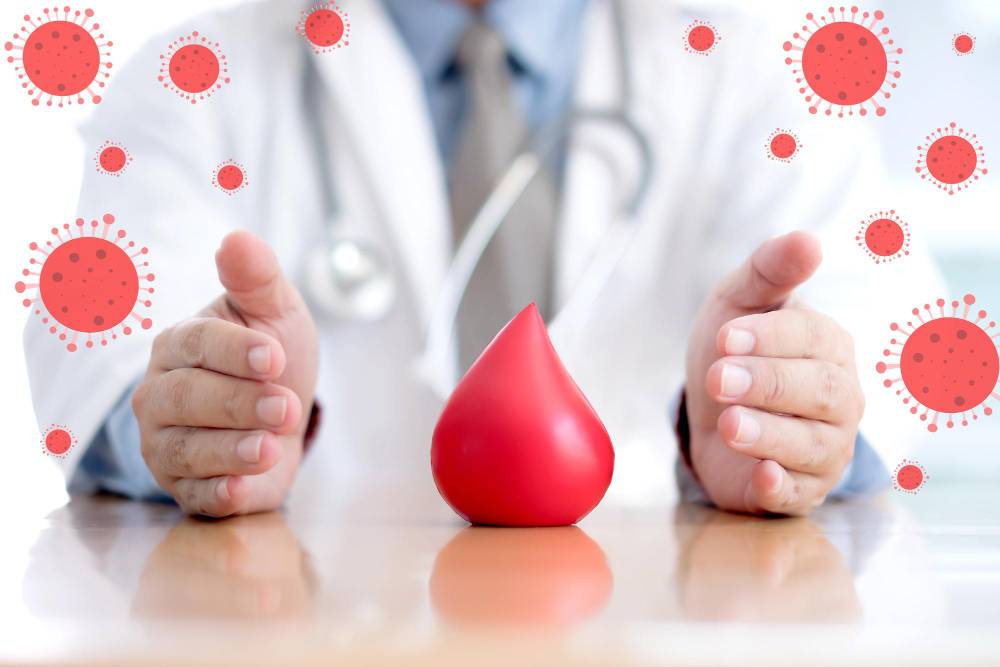Menu
Working Hours: 08:30 am - 05:00 pm

When you think about maintaining your health, you may focus on weight, heart health, or general fitness. But, one often overlooked aspect of health is blood health, which is needed for preventing anemia. Anemia is a condition that occurs when your blood supply does not have enough blood cells or hemoglobin, and this can lead to severe fatigue, weakness, and a range of other serious symptoms. Fortunately, taking simple steps to boost your blood health can help prevent anemia and keep your body functioning at its best. At Right Weight Center, we know the importance of holistic health in your journey to well-being. Keep reading to learn about some essential nutrients that can help you maintain healthy blood and reduce the risk of anemia.
Iron is one of the most critical components for maintaining healthy blood. It's responsible for producing hemoglobin, which is the name for the protein in red blood cells that carry oxygen through your body. When you're low on iron, your body doesn't produce enough red blood cells. To maintain optimal levels of iron, you need a diet rich in iron-containing foods like red meat, poultry, fish and plant-based options like lentils, spinach, and fortified cereals. If you're focusing on weight loss management and have some dietary restrictions, it might be challenging to get enough iron through food alone. That’s why it’s important to work with a weight loss doctor who can guide you in balancing your diet while ensuring that you’re meeting your body’s needs for essential nutrients like iron. If dietary changes aren't enough, supplements can help restore your iron levels. Proper management of your iron intake is necessary for maintaining your energy and preventing anemia.
Vitamin B12 keeps your blood healthy, particularly by assisting with red blood cell production. A deficiency can lead to megaloblastic anemia, which is a condition where the body produces abnormally large and inefficient red blood cells that leave you feeling fatigued and weak. Foods rich in Vitamin B12 include products like eggs, meat, poultry, and dairy. For those who are following a plant-based diet, fortified cereals, plant-based milk, and supplements are essential to ensure adequate intake. If you’re undergoing a medical weight loss program, you might be adjusting your diet in ways that could affect your B12 intake, so it’s critical to monitor this nutrient closely. For those who have trouble absorbing B12, such as individuals with digestive disorders, B12 injections or high-dose supplements may be necessary to prevent deficiency and anemia.
Folate, also known as Vitamin B9, works hand-in-hand with Vitamin B12 to produce new blood cells. A lack of folate can also lead to megaloblastic anemia, which results in fatigue, weakness, and pale skin. Dietary sources of folate include legumes, dark leafy greens, nuts, seeds, and fortified grains. Pregnant women, in particular, need to ensure they are getting enough folate to prevent neural tube defects in their babies, but everyone can benefit from including folate-rich foods in their diet. If you're on a restricted diet as part of a weight loss management program, it can sometimes be tricky to ensure you're getting enough folate. A medical weight loss specialist in Hyattsville can provide guidance on how to incorporate folate-rich foods into your eating plan or recommend a folic acid supplement if needed.
Though Vitamin K is best known for its role in blood clotting, it also plays a part in bone health and maintaining strong blood vessels. Without sufficient Vitamin K, your blood might not clot properly, which could potentially lead to excessive bleeding and bruising. Although this isn’t anemia directly, it’s important to consider because poor blood clotting can worsen the symptoms of anemia or mask its presence. Green vegetables, including broccoli, spinach, and kale, are valuable sources of Vitamin K. While it’s rare to have a Vitamin K deficiency if you’re on certain medications like blood thinners, your doctor may recommend you monitor your Vitamin K intake closely. For individuals focused on medical weight loss, dietary shifts can sometimes lead to changes in vitamin intake, including Vitamin K. It’s important to maintain a balanced diet with plenty of vegetables to ensure you’re getting enough of this vital nutrient.
Preventing anemia and maintaining blood health requires a comprehensive approach to nutrition. While individual vitamins and minerals play distinct roles in your body, they work together to keep your red blood cells healthy and functioning well. At Right Weight Center, we take a holistic approach to weight loss management that prioritizes your immediate goals and your long-term health. While losing weight can improve many aspects of your health, it’s important to ensure that you’re not compromising on essential nutrients like iron and Vitamin B12 in the process. Partnering with a weight loss doctor can support sustainable weight loss while boosting your blood health to prevent anemia.
Whether you’re looking to shed a few pounds or manage a chronic condition, Right Weight Center offers the support necessary to achieve your goals while keeping your blood health in check. Contact us today to learn how we can help.
See what our patients have to say... You don't have to pay thousands of dollars to lose weight. Our patients have great inspiring stories from a experience with us.